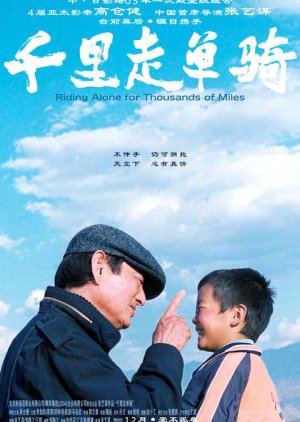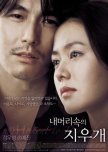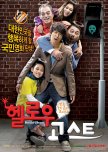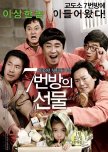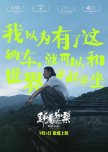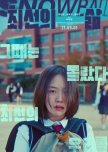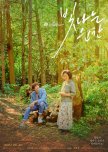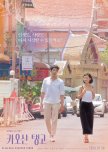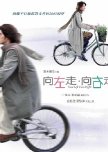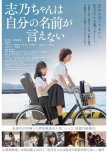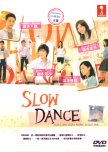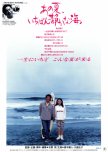
Truly brilliant across the board. As the special feature said, since he'd made these world-renowned blockbuster films, he could pretty much do what he wanted with what cast he wanted. The big names were mostly from the Japanese side of the cast, but the Chinese used virtually all amateurs. Even actual tour guides. And it was incredible. Yimou Zhang is officially a genius, in my mind. It made for a very natural and beautiful feeling. I really can't even describe how moved I was by this film.
Takakura Ken was absolutely incredibly. He reminds me of a couple of older men I know, and probably will you too. Those rough, silent men that struggle to express themselves. And the quietly powerful emotion this actor gets across is simply mind-blowing. Not to mention the great acting from the little boy.
I also was able to see parts of China that I didn't realize existed. Very rough country that reminds me a lot of different places I've visited in western U.S, but unique at the same time.
I would describe this as a quiet film but with so, so much depth. This is not a movie I will easily forget and will end up purchasing before too long. Don't miss this one!
Was this review helpful to you?

Asides from that, true to his style, Yimou has once again succeeded in making a very visually beautiful movie. As usual, just like in his previous works House of the Flying Daggers, Hero, or Raise the Red Lanterns, the cinematography presented on this movie is also breathtaking and dazzling.
And then there's Takakura Ken, which one can consider as one of the "giants" in Japanese cinema. He brilliantly portrays Takata-san as a quiet and likeable man who’s drowning in sorrow. But it is unfair to focus solely on his performance, because everyone else in the cast was amazing. I was especially captivated by the bright young actor who plays Yang Yang. His mischivieous, distrustful stubborn-smudged face, is ironically so loveable that you just wanna hug him and pinch his cheeks.
For me, this is by far, the best of Yimou's movie that I have watched, and it’s a worthy addition to my list of favourite films.
Was this review helpful to you?

Breath of Fresh Air
Filmmaker Zhang Yi Mou is best known as the director of Hero (2002), House of Flying Daggers (2004), Curse of the Golden Flower (2006) three depictions of Feudal China combining jaw-dropping cinematography and surreal choreography. In simple terms, wushu grandeur films, but he has mastered the art of filmography beyond the Wushu genre.His films such as Raise High the Red Lanterns (1991), Coming Home (1999), Happy Times (2000), and Under the Hawthorn Tree (2010) fly under the radar regarding social issues. His experience as a cinematographer contributed to Riding Alone for Thousands of Miles the visual imagery of Japan's coast and Yunnan's mountains and terrain, the picture is, as usual, a credit to Zhang Yimou's distinctive talent. Today's audience bombarded with an onslaught of genres like ACTION, WUSHU, ADVENTURE, SCI-FI, or COMIC Book Live Adaptations diluting their appetite for Waterdown gratification.
The film tackles the estranged relationship between a father and his dying son only to encounter numerous obstacles of language, time, and governmental bureaucracy. The focal point of the story surrounding Chinese folk opera singer Li Jiamin (Jiamin Li ) who Ken Takakura's character, hoping to repair relations with his son, decides to set on a trip to China and film the singer with the help of Jasmine (Jiang Wen) and Lingo (Lin Qiu), two translators.
Ken Takakura's performance is nothing short of spectacular. Zhang's camera delineates his face with great diligence and grace in style. The range of depth emotions he pours into his character who speaks through stoic facial expressions, sullen strides, and gentle motions of the hand is a difficult task, one which Takakura—a famed Yakuza actor—undertakes with apparent ease. It is his last film. The dialogue takes a back seat to the subtle changes in the scenery. The non-actors were themselves going about life.
It is a tired formula from a brilliant director. Some of the themes he utilities journey past bureaucracy and dispassion examined in his early film The Story of Qiu Ju (1992). The tragic element within the movie beautiful, but I tend to prefer the melodrama - tragedy in Happy Times (2000). The OST is alright, but it was not the piece that catapulted the film over the top.
Sally Wen Mao's poem popped into my head while viewing this awing film cinematography by Xiaoding Zhao, who lent his cinematic expertise in Zhang's House of Flying Daggers film. This film relies heavily on contrasts - the vibrant, untouched Chinese mountains and valley against Japan's grey tone. Riding Alone for Thousands of Miles creates a story built around Gou-Ichi Takata's (Ken Takakura) search for reconnection. I thought of the poem below while riding alone in uninhabited lands or our journey of self-discovery/redemption; we come to find solace that everything we do is essential to someone.
Riding Alone for Thousands of Miles Poem
by Sally Wen Mao
“In Lijiang, the sign outside your hostel
glares: Ride alone, ride alone, ride
alone — it taunts you for the mileage
of your solitude, must be past
thousands, for you rode this plane
alone, this train alone, you'll ride
this bus alone well into the summer night,
well into the next hamlet, town,
city, the next century, as the trees twitch
and the clouds wane and the tides
quiver and the galaxies tilt and the sun
spins us another lonely cycle, you'll
wonder if this compass will ever change.
The sun doesn't need more heat,
so why should you? The trees don't need
to be close, so why should you?”
Final Rating: 8.51/10
Story: 8.24/10
Acting: 9.52/10
Rewatch Value: 7/10
It sends a great message, but I will hold off a little while I view this Lost In Translation film.
Was this review helpful to you?

